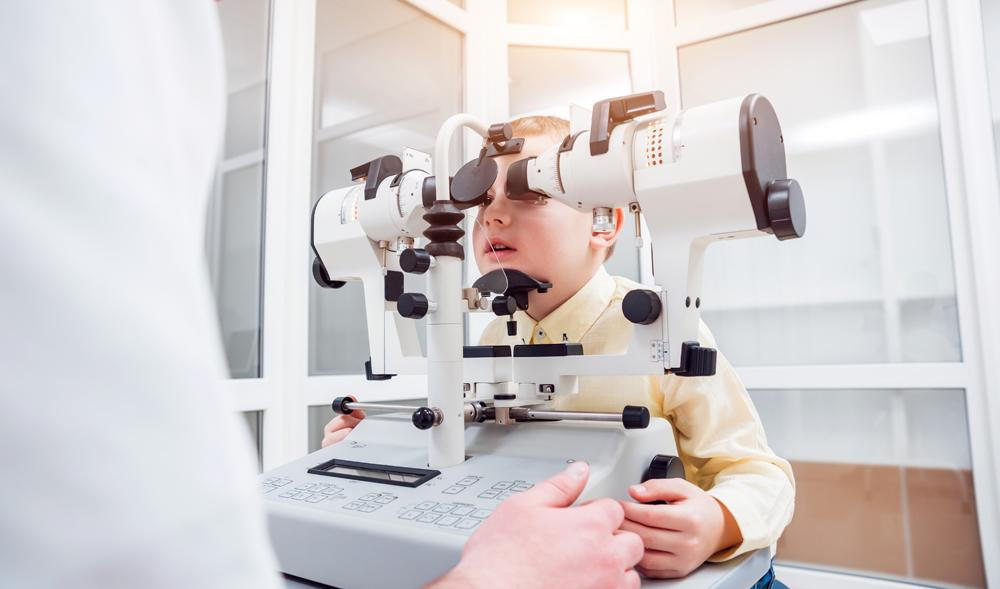Recognizing the Different Eye Conditions Treated by Specialized Eye Care Professionals
In the world of eye care, specialized specialists play a crucial function in identifying and dealing with a wide range of eye conditions. From common refractive mistakes that influence vision clarity to age-related problems that pose challenges as we age, the competence of these professionals expands to managing vision-threatening diseases and complex corneal conditions. The complexities of neurological eye conditions existing distinct challenges that demand specialized treatment. As we start this expedition of the different eye conditions resolved by specialized eye treatment professionals, it comes to be noticeable that the complex internet of ocular health and wellness holds a myriad of remarkable understandings waiting to be uncovered.
Typical Refractive Errors
Refractive errors prevail aesthetic conditions triggered by an imperfection in the eye's ability to appropriately focus light, resulting in obscured vision. One of the most prevalent sorts of refractive mistakes include myopia (nearsightedness), hyperopia (farsightedness), astigmatism, and presbyopia. Myopia happens when the eyeball is as well long or the cornea is as well rounded, creating far-off items to show up blurry. Hyperopia, on the other hand, occurs when the eyeball is as well brief or the cornea is too level, resulting in neighboring things running out focus. Astigmatism is characterized by an irregularly shaped cornea, causing distorted or obscured vision in any way ranges. Presbyopia is an age-related condition where the lens sheds its adaptability, making it difficult to concentrate on close things.
These refractive mistakes can be dealt with with different techniques, consisting of eyeglasses, contact lenses, or refractive surgery. Eye treatment professionals play an essential duty in diagnosing and taking care of refractive mistakes to aid people accomplish clearer vision and boost their lifestyle.
Age-Related Eye Problems
One of the most widespread age-related eye conditions is age-related macular degeneration (AMD), a disease that triggers main vision loss and can make activities like analysis and driving difficult. Cataracts, another usual problem amongst older people, create clouding of the eye's natural lens, leading to blurred vision. Regular eye exams with specialized eye treatment experts are essential for early discovery and management of these age-related eye conditions to preserve vision and maintain ocular health as individuals expand older.
Vision-Threatening Diseases
Vision-threatening illness include a variety of serious ocular conditions that have the prospective to considerably influence an individual's sight and overall aesthetic feature. These diseases posture a threat of permanent vision loss otherwise quickly detected and treated by specialized eye care professionals. Some common vision-threatening diseases include glaucoma, diabetic person retinopathy, age-related macular degeneration (AMD), and retinal detachment.
Glaucoma is a group of eye problems that harm the optic nerve, usually as a result of high intraocular pressure, resulting in field of vision loss and prospective blindness if left without treatment. Diabetic retinopathy is a complication of diabetes mellitus that influences blood vessels in the retina, creating vision disability or loss of sight. AMD is a modern condition affecting the macula, resulting in central vision loss. Retinal detachment takes place when the retina separates from its underlying cells, causing unexpected vision loss that calls for instant click to read more clinical attention (refractive surgeries in al).
Early detection, routine eye tests, and prompt intervention are essential in handling vision-threatening diseases to preserve sight and keep lifestyle. Specialized eye treatment specialists play a crucial duty in diagnosing, dealing with, and taking care of these problems to prevent irreversible vision loss.

Corneal Disorders
Corneal problems encompass a range of conditions that affect the clear front part of the eye, understood as the cornea. These problems can bring about discomfort, aesthetic disruptions, and in serious instances, vision loss. One common corneal disorder is keratoconus, where the cornea thins and bulges exterior right into a cone shape, causing astigmatism and obscured vision. Corneal dystrophies, such as Fuchs' dystrophy, cause steady vision loss as a result of irregular down payments in the cornea. Corneal abrasions, commonly triggered by injury or international items, can lead to discomfort, soreness, and sensitivity to light. In addition, infections like keratitis can inflame the cornea, possibly resulting in scarring and vision impairment otherwise without delay treated. Treatment for corneal problems differs depending on the details problem yet might include medications, call lenses, or in serious instances, corneal transplants. Regular eye exams are essential for very early discovery and administration of corneal problems to maintain vision and eye wellness.
Neurological Eye Conditions
Neurological eye problems include conditions that influence the connection between the eyes and the brain, influencing aesthetic handling and general eye feature. These problems can show up this page in numerous means, influencing vision, eye movements, and also the sychronisation between the eyes. One typical neurological eye condition is optic neuritis, identified by swelling of the optic nerve resulting in vision loss, color desaturation, and discomfort with eye motion.
An additional substantial condition is nystagmus, where the eyes make recurring, unchecked activities, affecting aesthetic skill and deepness understanding. Furthermore, problems like amblyopia, frequently referred to as "lazy eye," arise from irregular visual growth in early childhood, resulting in reduced vision in one eye.
Neurological eye problems need customized care from professionals like neuro-ophthalmologists that have proficiency in both neurology and ophthalmology. Medical diagnosis visit the website often entails a detailed eye evaluation, imaging research studies, and partnership with specialists to address the underlying neurological concerns influencing the aesthetic system. Therapy approaches can consist of drug, vision treatment, or in extreme instances, surgical treatments to manage these intricate conditions successfully.

Final Thought
Finally, specialized eye care specialists treat a wide variety of eye problems, consisting of usual refractive mistakes, age-related eye problems, vision-threatening illness, corneal problems, and neurological eye problems - refractive surgeries in al. By comprehending these different conditions and seeking proper treatment from eye care specialists, people can keep ideal eye wellness and vision. It is very important to prioritize normal eye evaluations and follow recommended therapy plans to protect and secure one's vision for the future
Comments on “Expert Glaucoma Service Near Me: Advanced Therapy Options”